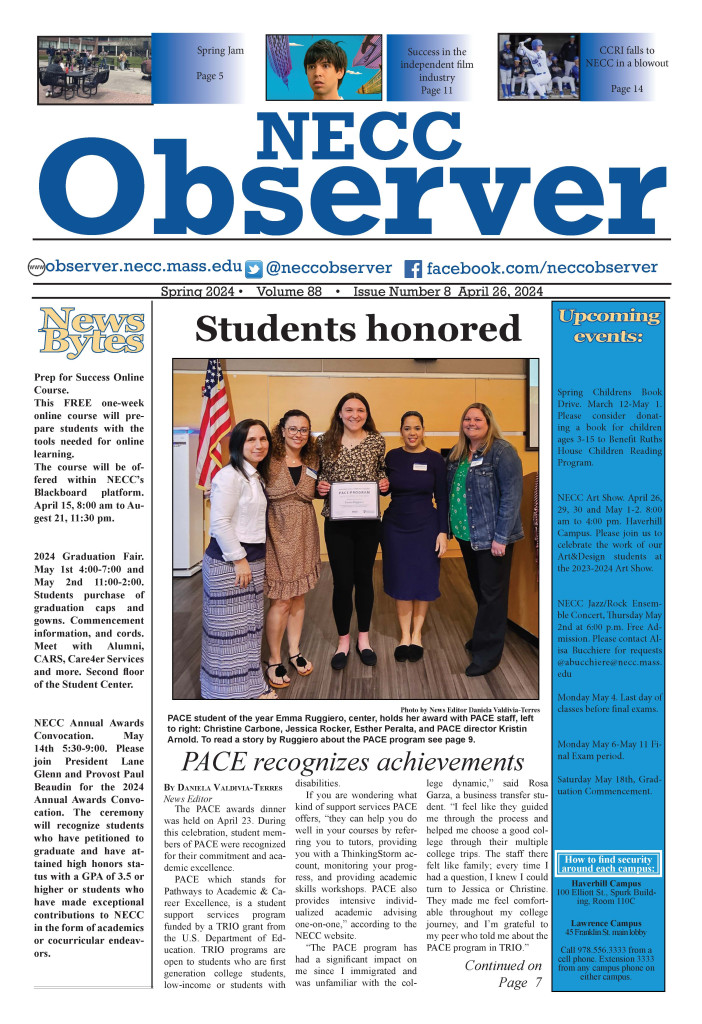It’s almost been a year since I wrote my first editorial story in the NECC Observer, where I touched on gun violence in the United States. On Monday March 27th, 2023, another mass school shooting happened.
I think it’s important to touch back on this subject. This time we are going to focus primarily on school shootings.
The shooting that took place Monday in Nashville Tennessee occurred at the Covenant School, a K through sixth grade private Presbyterian school found in the Green Hills neighborhood of Nashville.
Three students and three staff were senselessly gunned down and lost their lives, because in America, if you’re under 18 years old you are more likely to be murdered by a gunman than pass away in a car accident. A statistic that has been rising rapidly the last 25 years.
From January 2009 to May 2018 the United States has had a total of 289 school shootings, the entirety of all other countries in the world during the same time had a grand total of 40.
If all gun violence in schools in the USA stopped this moment, it would take the combined other 194 countries in the world seven years and three months to catch up with the United States.
The K through 12 database states the USA saw more shootings on school grounds with more victims wounded or killed in 2022 than any other year.
School shootings in the United States have become all too common over the past few decades. These devastating events have taken the lives of countless innocent students, teachers and staff members, leaving communities shattered and forever changed.
It is time for our society to take a hard look at the underlying causes of these tragedies and to take action to prevent them from occurring in the future.
One of the most shocking aspects of school shootings in the U.S. is their frequency.
According to data compiled by Everytown for Gun Safety, there have been at least 306 school shootings in America since 2013, which averages to nearly one per week. In contrast, many other developed countries have not experienced any school shootings in recent years.
For example, in Japan, where gun ownership is strictly regulated, there have been zero school shootings since at least 2002.
So, what makes the U.S. so different? The answer lies in our unique gun culture and lax gun laws.
Despite widespread public support for common-sense gun control measures like universal background checks and red flag laws, politicians and special interest groups have effectively blocked any meaningful progress on this issue. As a result, it is all too easy for individuals with dangerous intentions to obtain firearms, often legally.
We only need to look at past school shootings to see the devastating consequences of this lack of action.
In 1999, the shooting at Columbine High School in Colorado shocked the nation and led to calls for stricter gun control measures. However, little progress was made, and subsequent shootings at Virginia Tech, Sandy Hook Elementary School, and Marjory Stoneman Douglas High School, among others, have demonstrated that our society has failed to learn from these tragedies.
The consequences of these shootings go beyond the immediate loss of life and trauma. School shootings also have long-term effects on students’ mental health and academic performance. A study by researchers at Georgia State University found that students who attend schools where a shooting has occurred are more likely to experience anxiety, depression, and PTSD.
Additionally, students may miss school or have difficulty concentrating in the aftermath of a shooting, leading to poorer academic outcomes.
It is clear that something needs to be done to prevent future school shootings in the U.S.
One solution could be to adopt policies like those in other developed countries that have successfully prevented these tragedies.
For example, Australia implemented strict gun control measures after a mass shooting in 1996, and there have been no mass shootings in the country since. Other countries like Japan, Canada, and the UK have also implemented gun control measures that have led to a dramatic decrease in gun violence.
Another solution could be to invest in mental health resources for students and to create a culture of support and empathy in schools. Many school shooters have had a history of mental health issues or have been victims of bullying or social isolation. By providing students with resources to address these issues and promoting an inclusive school culture, we can help prevent students from turning to violence as a solution.
Lastly, we must prioritize the safety of our students by investing in school security measures such as metal detectors, security cameras, and active shooter drills. While these measures may not prevent all school shootings, they can reduce the likelihood of an attack and provide students and staff with the tools they need to respond quickly and effectively in the event of an emergency.
School shootings in the U.S. are a tragedy that must be addressed. While there is no one-size-fits-all solution, we must take action to prevent these events from occurring in the future. By adopting common-sense gun control measures, investing in mental health resources, and prioritizing school safety, we can create a safer and more inclusive learning environment for all students. We owe it to the victims of past school shootings and to future generations to act now.
Thoughts and prayers by our lawmakers are not helping anyone. Lawmakers need to DO SOMETHING! Because the guns our killing our kids.

